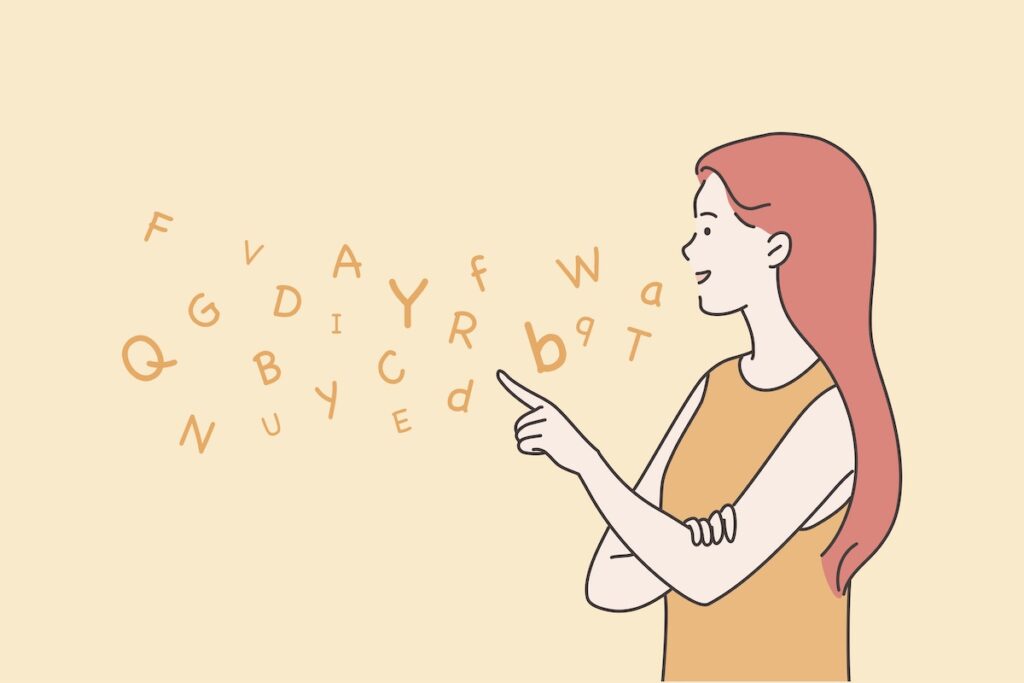Written by Alexis Dewey
Has one of your relatives ever jokingly threatened to duct-tape your mouth shut? No? Just me? Well, anyways, that’s what a speech impediment can feel like. You are trying your hardest to get your words out, but to everyone else you just sound muffled.

Growing up not feeling heard due to a speech impediment was a tough idea to cope with. What made it even more difficult was knowing it would be hard to fix, and that parts of the speech impediment might not fully go away. Understanding that your speech impediment, which you cannot control, causes you to have other problems, is not fun in your childhood. Even now, in my adulthood, I still notice signs of my speech impediment almost daily. Learning how to see it as an obstacle to help me become better, rather than something holding me back, took a long time.
What is a speech impediment?
A speech impediment is when a child cannot speak in a way that people can understand what they are saying. There are several different types of impediments/impairments. According to the Cleveland Clinic (2021), the first type of impediment involving speech is stuttering. Stuttering is possibly a developmental delay, inherited from family, or even a sign that the brain cannot respond to functions that create speech. The next type of speech impediment is articulation errors, which is when children struggle placing their tongue in the correct position, causing them to have a hard time creating speech sounds. Another impediment is a physical condition called “tongue-tied.” This is when the child is born with the difficulty to move his or her tongue. Apraxia is another speech impediment that causes the brian to not properly coordinate its muscles that creates speech. The next is dysarthria, which, due to brain damage, causes a child to slur his or her words. The last one I will mention is selective mutism. This is when a child is so anxious they will not speak in certain situations.
How common are speech disorders/impediments?
Studies from the National Institute on Deafness and Other Communication Disorders (2016), show that 1 in 12 children in the U.S. have been diagnosed with some sort of speech or language disorder/impediment. Speech impediments affect children in all different ways. The most common is when a child cannot pronounce words correctly due to their mouth, jaw, tongue, and vocal tract not working together. This, inherently, can make it difficult for children to learn how to read and write, as well. This is why it is so crucial for legal guardians to notice the signs of speech impediments as early as possible. Speech impediments are more common than most people would think.
What are the signs you should look for?
Noticing the signs of a speech impediment early on can be a huge help to your child. The earlier a child can receive help and therapy for their speech impediment, the better. Stuttering and long pauses in between words is a common sign people notice, and perhaps the easiest to point out. Another sign, according to Penn Medicine (2022), is when a child cannot pronounce letters correctly or struggle putting two letters together to make a new sound. Repeating or elongating words is yet another sign to watch out for.
Another big tip, that Jackie Potts, a speech pathologist therapist, said to look out for is how others understand your child. If others have a hard time understand your child, but you can understand them just fine, there could be an issue. This is normally because parents get familiar with the way their child speaks, and grows to understand them despite their impediment. Thus, when others cannot understand your child on a regular basis, consider having your child tested for a speech disorder.
If you have any inclination that your child has a speech impediment, it never hurts to seek help from a local speech pathologist. The earlier you find answers, the easier an upbringing will your child have.